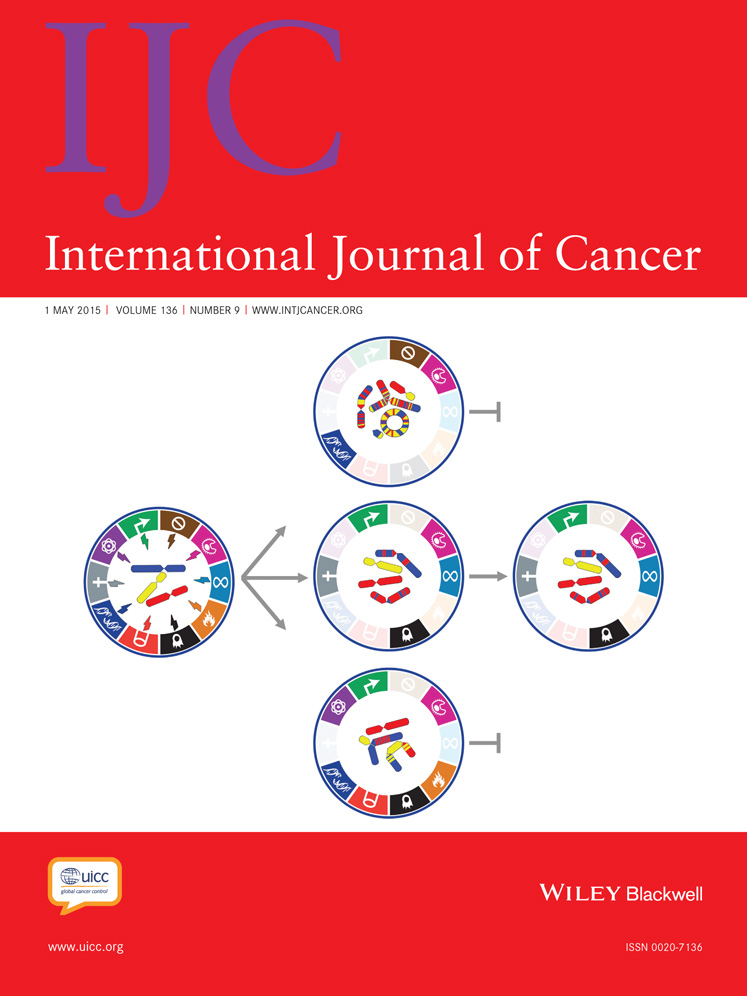Letter to the Editor
Comment on “Sweat but no gain”: Inhibiting proliferation of multidrug resistant cancer cells with “Ersatzdroges”
Dirk Theile,
Dirk Theile
Department of Clinical Pharmacology and Pharmacoepidemiology, University of Heidelberg, Im Neuenheimer Feld 410, 69120 Heidelberg, Germany
Search for more papers by this author Johanna Weiss,
Corresponding Author
Johanna Weiss
Department of Clinical Pharmacology and Pharmacoepidemiology, University of Heidelberg, Im Neuenheimer Feld 410, 69120 Heidelberg, Germany
Correspondence to: Johanna Weiss, Department of Clinical Pharmacology and Pharmacoepidemiology, University of Heidelberg, Im Neuenheimer Feld 410, 69120 Heidelberg, Germany, Tel.: [49 6221 56-39402], Fax: +[49 6221 56-4642], E-mail:
[email protected]Search for more papers by this author
Dirk Theile,
Dirk Theile
Department of Clinical Pharmacology and Pharmacoepidemiology, University of Heidelberg, Im Neuenheimer Feld 410, 69120 Heidelberg, Germany
Search for more papers by this author Johanna Weiss,
Corresponding Author
Johanna Weiss
Department of Clinical Pharmacology and Pharmacoepidemiology, University of Heidelberg, Im Neuenheimer Feld 410, 69120 Heidelberg, Germany
Correspondence to: Johanna Weiss, Department of Clinical Pharmacology and Pharmacoepidemiology, University of Heidelberg, Im Neuenheimer Feld 410, 69120 Heidelberg, Germany, Tel.: [49 6221 56-39402], Fax: +[49 6221 56-4642], E-mail:
[email protected]Search for more papers by this author
First published: 01 October 2014
No abstract is available for this article.
References
- 1
Kam Y,
Das T,
Tian H, et al. Sweat but no gain: Inhibiting proliferation of multidrug resistant cancer cells with “ersatzdroges”. Int J Cancer 2014, Aug 23. doi:10.1002/ijc29158.
- 2
Litman T,
Zeuthen T,
Skovsgaard T, et al. Competitive, non-competitive and cooperative interactions between substrates of P-glycoprotein as measured by its ATPase activity. Biochim Biophys Acta 1997; 1361: 169–76.
- 3
Spoelstra EC1,
Westerhoff HV,
Pinedo HM, et al. The multidrug-resistance-reverser verapamil interferes with cellular P-glycoprotein-mediated pumping of daunorubicin as a non-competing substrate. Eur J Biochem 1994; 221: 363–73.
- 4
Fricker G1,
Drewe J,
Huwyler J, et al. Relevance of p-glycoprotein for the enteral absorption of cyclosporin A: in vitro-in vivo correlation. Br J Pharmacol 1996; 118: 1841–7.
- 5
Verschraagen M1,
Koks CH,
Schellens JH, et al. P-glycoprotein system as a determinant of drug interactions: the case of digoxin-verapamil. Pharmacol Res 1999; 40: 301–6.
- 6
Spahn-Langguth H,
Baktir G,
Radschuweit A, et al. P-glycoprotein transporters and the gastrointestinal tract: evaluation of the potential in vivo relevance of in vitro data employing talinolol as model compound. Int J Clin Pharmacol Ther 1998; 36: 16–24.
- 7
Lin JH. Transporter-mediated drug interactions: clinical implications and in vitro assessment. Expert Opin Drug Metab Toxicol 2007; 3: 81–92.
- 8
Tahara H,
Kusuhara H,
Fuse E, et al. P-glycoprotein plays a major role in the efflux of fexofenadine in the small intestine and blood-brain barrier, but only a limited role in its biliary excretion. Drug Metab Dispos 2005; 33; 963–8.
- 9
Mickley LA,
Bates SE,
Richert ND, et al. Modulation of the expression of a multidrug resistance gene (mdr-1/P-glycoprotein) by differentiating agents. J Biol Chem 1989; 264: 18031–40.
- 10
Gréen H1,
Lotfi K,
Zackrisson AL, et al. Spontaneous reversal of p-glycoprotein expression in multidrug resistant cell lines. Pharmacol Toxicol 2003; 93: 297–304.




